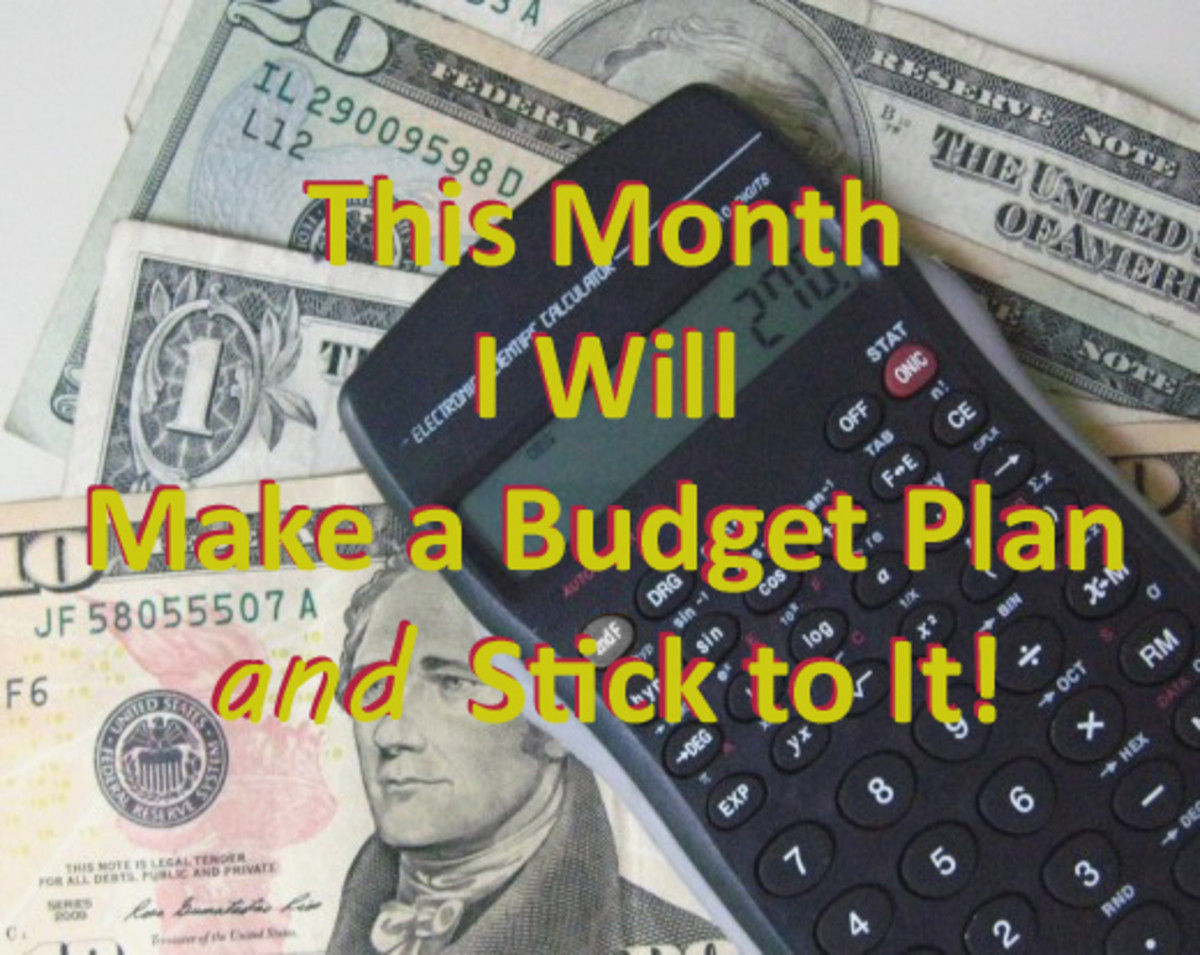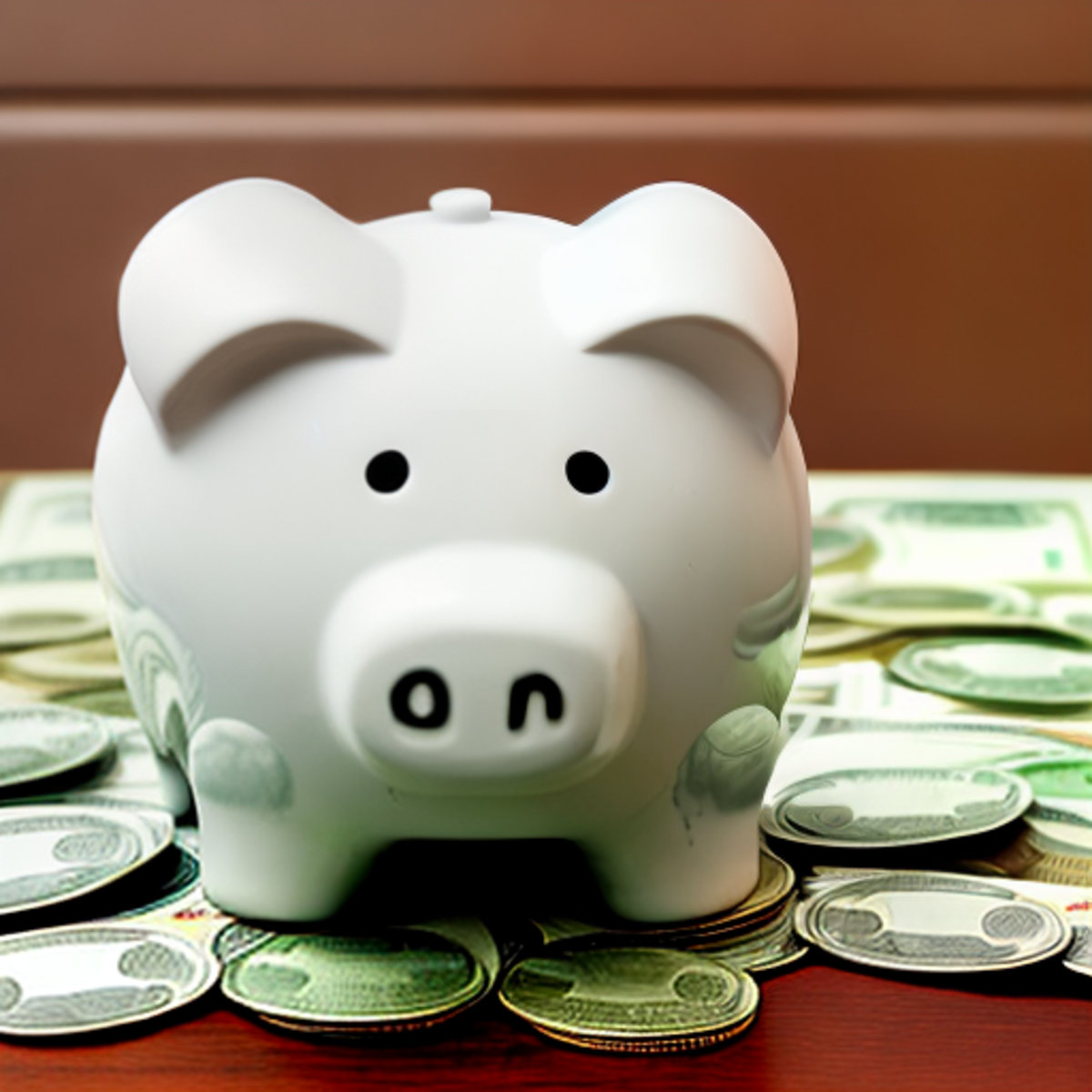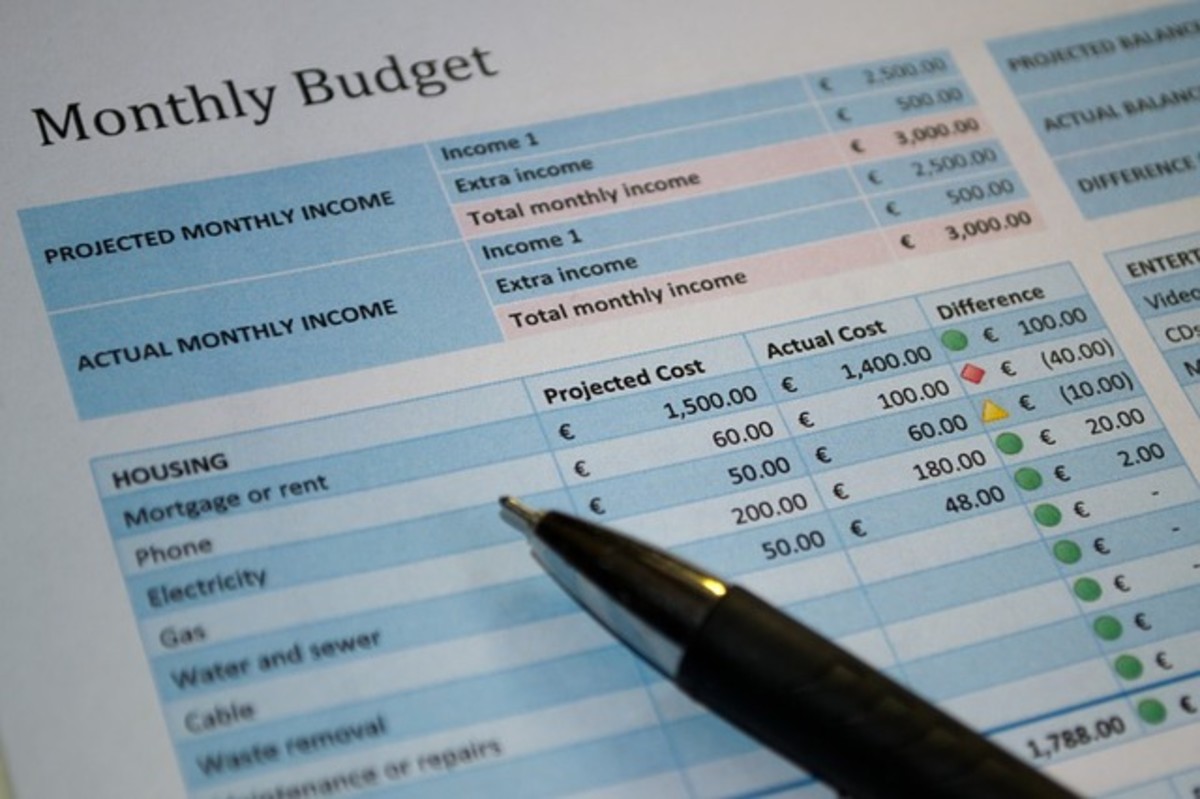4 Steps to Budget your Paycheck Effectively: When Do You Use My Income Advice? Start With How Much Money You Have Today!

Why budget your paycheck today?
It is important to manage your money. It helps you meet your monthly financial obligations on time. Managing your finances also help increase your capability to save for your retirement, education funds or by simply having extra sitting in the bank.
Budgeting your paycheck is an art. It is designing and planning the future of your wealth. "Your financial plan is showing you the direction of your finances and will help you maneuver within your means." - by the girls. The money that you own and can spend anytime is what you will be able to include in your budget. There are many ways to do your budget but I will show you the 4-steps on how to do budgeting effectively.
The 4-steps to budget your paycheck effectively:
- Know how much is your paycheck, after tax deduction
- Identify your fixed expenses
- Identify your variable expenses
- Monitoring and Strategy
Making a financial plan can be seen by many as a balancing act. These four steps on how to budget your paycheck will also help you design your safety nets while walking in a tight money rope. It will allow you to plan in advance if you need additional sources of income or if you need to make a temporary loan to make ends meet.
Without a written budget, you have a very high chance of overspending your money and not knowing what are the consequences that lies ahead. This is what we are trying to avoid here. We know that the effects of overspending or being cash strapped places a heavy toll in our health, wealth and relationships.
Step 1: How much money do you bring home?
You need to know how much income you earn in a weekly, bi-weekly or monthly basis. Knowing how much is your paycheck, after deducting taxes, is the first step in creating your budget.
If you have been earning for a period of time, you already have a fair idea of your average income. To the person who just got its first paycheck, your take home pay is the gross salary minus the federal and state taxes that are deducted from it. Your federal tax rate ranges from 15%-35%, depending on your income tax bracket. Your state tax deduction rate also depends on which state you live in.
Step 2: Identify Your Fixed Expenses
Fixed expenses are your monthly financial obligations that you need to pay on a consistent basis, whether you like them or not. Regardless of your financial activity, fixed expenses are awaiting payment from you every single month.
This means that even if you lose your job or your income, you are still obligated to pay them. During the recent economic recession, when millions of jobs were lost, the way of life of many Americans were affected drastically. Many could not afford to meet their ordinary fixed expenses anymore.
Suggested Examples of Fixed Expense:
- House Rental or Mortgage - This is the monthly payment to your landlord or mortgagee
- Car payment - It refers to your your monthly car amortization to your lender
- Insurance - It includes insurance on your car, health, life and property
- Electricity Bill - This is the electric power you use normally around your house. It includes the appliances, furniture and electronic gadgets you use at home
- Water and Gas Bill
- Telephone and Cellphone Bill
- Cable and Internet
- Medical and Prescriptions Costs - Your monthly medical needs that your doctor has prescribed for you.
- School expenses, tuition fees and books - Yourself and/or your dependent's K-12 and college school fees, supplies and books.
- Grocery - Your food and basic household supplies.
- Gas - This expense is a vital part of your car amortization expense. It cannot run without gas.
Fixed expenses are mostly fixed in dollar value on a month-to-month basis.This is not usually affected significantly even if your income increases or decreases at the end of your pay period.
Author's local trips:



Step 3: Identify Your Variable Expenses
Variable expenses are your expenses that you have full control. This type of bills are your spending habits that you can probably live with or without for a period of time.
Simply put, your controllable expenses are expenses that you can decide based on your wants and not on your basic needs. As brandrocker states, this behavior is also related with your happiness, passion, and impulse. You are likely to spend more during an emotional outbreak - both on its high and low end.
Your variable expenses is directly related to your income. As your paycheck increases, your variable expenses increases along with it. The same is true if your salary decreases, your controllable expenses will decrease too.
Suggested Examples of Variable Expense:
- Vacation Expenses - It includes the local and non-local trips you plan to go by yourself, with friends or with your family.
- Eating out - This are your eating out expenses from dining in at fast foods all the way to fancy restaurants. This category also includes your daily Starbucks coffee and the likes.
- Recreational activities - Your trips to the park, mall, movies, and others.
- Upgrades on your cable, telephone, cell phone, computer that can have alternatives - You should be able to determine if your upgrades is necessary or not. If it is beyond ordinary and necessary, then your additional costs on the added features of your cable, telephone, cell phone and computer will be classified as a variable expense.
- Shopping expenses i.e clothes, shoes, etc.
- Credit card payment - Your monthly credit card payment can range from the required minimum amount to paying in full your outstanding balance for the month.
- Money you put aside for your savings - Examples of your savings include the money in your bank (savings account), retirement plans like 401(k), investments in stocks and bonds or time deposits (CD).
A word of advise on the use of your credit cards: this available revolving credit privilege you have should help you cover necessary expenses between pay dates or allows you to earn those reward points. Don't use your credit card if you cannot afford to pay it back on time.
Budget for March
| Actual Expenses for March
| Did I make it?
|
|---|---|---|
1) March 15 paycheck $2000
| yes
| |
2) Fixed Expenses: -Rent $1500
| Rent $1500
| yes
|
Fixed Expense-Grocery $300
| Grocery 310
| no
|
3) Variable Exp - Recreation $100
| Recreation $150
| no
|
Varibale Exp-Money for Savings $100
| Money for Savings $ 0
| no
|
Variable Ex-Eating at Restaurant $150
| Eating at Restaurant $100
| yes
|
b4) Monitor result - my paycheck is not enough by ($150)
| will i work overtime or borrow money?
|
Step 4: Monitoring and Strategy
Now it's time to make the computations on your budget. First, subtract your fixed expenses from your paycheck. The difference between your paycheck and fixed expenses will be the money available to pay for your variable expenses.
Next, you deduct your variable expenses. The difference from deducting your fixed and variable expenses from your income will either be a positive or negative number. A positive number will tell you that you have extra money to save or spend. A negative difference will tell you that you are in trouble.
Budget Example:
Paycheck $2000
Less: Fixed Expenses $1800
Difference $ 200
Less:Variable Expense 350
Shortage on paycheck ($ 150) based on budget
The concept of breaking down your expenses is to emphasize the fact that if your salary or paycheck cannot pay all your fixed and variable expenses, there is data available for you to analyze your spending pattern. You will be able to identify specifically which part of your budget is doing okay and which part has gone wrong.
You have two immediate options to solve your budget shortage or lack of money thereof. The first option is to increase your income or salary by the amount you need. Increasing your income is usually the first choice that you will make. This way, it doesn't affect the dollar value you have placed on your budget's fixed and variable expenses.
Strategies to increase your income:
- Work overtime
- Get a second or third job
- Have a part-time work
- Put up a garage sale
- Start up a small business at home that you are passionate about. Adjust your schedule so that you can work on it at night, during weekends or on your free time.
- Turn your hobby into an income generating activity. Usually, your hobby is your craft that you really enjoy doing and is good at it.
The second option is to reduce, constrict, eliminate or sacrifice your Variable Expenses. You can use the trial-and-error approach, adding or subtracting dollar amounts from one controllable expense to another until you arrive at your desired result. The bills you identified as variable expenses are the ones that you can manipulate to make your budget work.
Tips to manage your Variable Expenses:
- Bundle your cable, television and telephone lines to get the cheaper upgrades for the services. Most of the these companies have business ties with each other that they offer cheap bundled products. Be aware that their promotion runs for 12 or 24 months only and you need to renew them to keep on paying the promotional rates.
- Decide on your vacation plans based on three factors: Affordability, Worth and Priority
- Affordability - The question is, can you afford this vacation? Have you been saving up for this trip? Don't sacrifice your basic needs for a lavish activity that you cannot afford to pay.
- Worth - Is the trip worth it? Don't rely on what you read on the advertisements for your vacation destinations. Do your own extensive research before making your decision.
- Priority - Do you have to go on vacation now, or next year, or the year after next? Which of the many vacation plans you have should you do first? Your trips should not have a negative effect in your financial health when you come back home.
- Plan recreational activities inside somebody's house. Getting together with friends and family to spend weekends in a house is cheaper than somewhere else.
Your budget does not have a mind of its own. You have to constantly check your actual expenses versus your budget. Monitoring your expenses ensures that your money is on the right track.
"“The way to stop financial “joy-riding” is to arrest the chauffeur, not the automobile.” - Woodrow Wilson"
Suggested tutorial video using excel spreadsheet. Uploaded by freeutubetutorials on Jun 25, 2008
Tools you can use in making your budget
Below are suggested tools to help you make your budget processing and recording easier:
- Use the Microsoft Excel or spreadsheet -this is a very useful tool to record your income and expenses with speed and accuracy.
- Use your cellphone to access your budget file and update it anytime, anywhere. Aside from accessing your Facebook, Twitter, email, etc, from your cellphone frequently, take advantage of the technology available to you to access your budget records too.
- If you are recording your budget and actual expenses manually, using the good old notebook or diary, have a ready calculator on hand The calculator will give you accurate addition and subtraction totals.
Good Luck!
Your budget is your brainchild. To be effective, I strongly recommend to follow the 4-steps beginning from Step 1; knowing how much money you bring home. Some people will be tempted to start the budgeting process from step 2 or step 3. I don't encourage to start making your budget focusing on what you need rather than what you have. Do it the other way around. So my advise is, do not start your budget thinking ahead your expenses before acknowledging how much you earn.
I hope the 4-Steps to budget your paycheck effectively will help you achieve your goal. In 2012, the United States only ranks 4th as a financial literate country (http://ph.news.yahoo.com/most-financially-literate-countries-211036210.html).
At first, tracking your expenses can be tedious. It will become easier as you get used to it. Move forward by setting aside 10-15 minutes daily to record your actual expenses and monitor your budget. By consistently doing this, a clear picture of your financial health will ultimately come into focus. You will be on your way achieving your financial target each passing day!
Start to create your budget with the money you have today. To reach your financial objective is a rewarding experience. If you have not designed your budget before, that is okay, Today is the right time to do it! Good luck!
Copyright © 2012 The Girls. All rights reserved. Reproduction in whole or in part in any form or medium without permission prohibited.

Other Articles by Author:
- 4 Easy Tricks To Save Money Everyday!
How did the economic recession affect our lives? Saving money now is more important than ever before. These 4 ordinary ways to save everyday is effective, without a doubt. - 6 Simple Ways to Teach Your Child To Earn And Save Money
Simple ways to teach your child to earn and save money from home. - 4 Costly Mistakes From not Paying $1.50: Gas versus Bus
What are its adverse effects specially on climate change? Manage your mental stress and keep up with fitness exercise as well.









